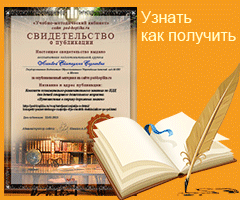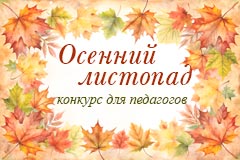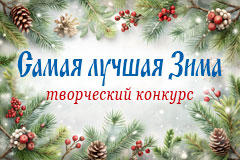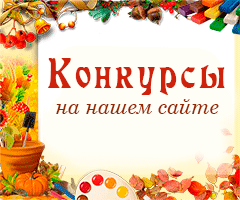Конспект урока английского языка ко Дню победы в Великой Отечественной Войне, 10-11 класс
Урок английского языка, посвященный победе в Великой Отечественной Войне
Урок рассчитан на обучающихся старших классов. Может быть использована для проведения урока или внеклассного мероприятия. Данная разработка предлагает решить проблему патриотического воспитания на занятиях английского языка. В ходе урока обучающиеся должны познакомиться с информацией о героях на английском. Цель урока:
Обучающие: познакомить учеников с боевым прошлым нашей Родины, повысить уровень восприятия и глубину проникновения в текст.
Развивающие: развивать и совершенствовать умения чтения с выборочным пониманием содержания, формировать у обучающихся способность участвовать в диалоге культур, совершенствовать информационную культуру обучающихся, развитие навыков изучающего аудирования;
Воспитательные: содействовать созданию целостной духовной картины мира и воспитывать чувство гордости за героическое прошлое наших земляков/ воспитание патриотизма;
Оборудования: экспонаты и стенды музея, компьютер, карточки с текстом, карточки с заданиями
Используемые учебники и учебные пособия:подходит для всех типов УМК.
ХОД УРОКА
1. Организационный момент.
В начале урока звучит песня "Victory Day"
2. Презентация темы и цели урока.
Dear boys and girls! I’m glad to see you today at the lesson. I think that you’ve already understood that the theme of our lesson will be Victory Day. Victory Day is a wonderful holiday different from all other holidays. It is a national holiday and at the same time it is a very personal one.
Young generations know about the Great Patriotic War only from books and films. But we should never forget those who gave their lives for our Motherland.
3. Речевая разминка. Беседа–разминка по теме «Великая Отечественная война».
1. When is Victory Day?
2. When did the Great Patriotic War start?
3. Who was the leader of Nazi Germany?
4. How do Russian people celebrate Victory Day? 1. 9 May
2. The Great Patriotic War started on 22 June 1941.
3. Adolf Hitler
4. On this day, TV networks broadcast World War II-inspired films, younger generations honor veterans, and the festivities culminate in a military parade at Moscow’s Red Square.
4. Проверка домашнего задания.
(Несколько учеников должны представить факты о Великой Отечественной Войне)
"Do you know that...? (примерные ответы)
The Great Patriotic War lasted 1,418 days and claimed over 20 million lives.
60 countries took part in it;
about 50 million servicemen and civilians were killed in the Second World War;
the Soviet victory at Stalingrad marked the beginning of a radical change in the Second World War;
on February 2, 1943, the last fascist troops capitulated;
on November 7, 1941, there was the parade of the Red Army troops in Red Square;
it was not far from Moscow where Nazi Germany suffered its first major defeat in the Second World War.
5. Введение новой лексики.
Проработка правильного произношения слов.
- Pupils, you see new words on the blackboard. Let’s read and translate them.
fascist ...... militant ...... machine gun
Gestapo ...... torture ...... posthumously
resistance group ...... comrade ...... division
Bureau ...... interrogation
weapon ...... partisan
6. Развитие навыков чтения
– Now, boys and girls, you are going to read texts about Great Patronic War heroes. Read them by yourself. And the task is to find whom these texts are about. I’ll give you 5 minutes
A. Yury Levitan
B. Zoya_Kosmodemyanskaya
C. Valentin_Kotyk
D. Musa Jalil
E. Gazinur Gafiyatullin
F. Mikhail_Devyatayev
1. In August 1943, fascist spies managed to track down the resistance group. He and most of his militant comrades were seized. There followed nightmare days and nights of interrogations, torture, and more torture. The Gestapo broke his left arm and injured his kidneys. His body was covered with welts from the beatings. His crushed fingers were swollen and would not bend. But the poet did not give up. Behind bars he continued his fight against fascism. He had only his poetry for a weapon, which speaks of a truth that has been paid for by the highest price imaginable-the price of one's own life.
2. He piloted the aircraft. The Germans tried to intercept the bomber but without success. The aircraft was damaged by the Soviet air defences but managed to land in Soviet-held territory. The escapees provided important information about the German missile program, especially about the V-1 and V-2. But the NKVD did not believe his story, arguing that it was impossible for the prisoners to take over an airplane without cooperation from the Germans. Thus, he was suspected of being a German spy and sent to a penal military unit along with the other nine men.
3. The Germans caught her as she started to torch another house. She was tortured and interrogated throughout the night but refused to give up any information. The following morning she was marched to the center of the town with a board around her neck bearing the inscription 'Houseburner' and hanged. Her final words were purported to be "Comrades! Why are you so gloomy? I am not afraid to die! I am happy to die for my people!" and to the Germans, "You'll hang me now, but I am not alone. There are two hundred million of us. You can't hang us all."
4. He was a Soviet pioneer, and a partisan scout. He was also the youngest ever Hero of Soviet Union.
During German-Soviet War he participated in partisan movement in Ukraine. First was coherent, then participated in fights, has been twice wounded, and killed in action. He received the Order of the Patriotic War 1st class and the Medal "Partisan of the Patriotic War".
5. When there were no more than 25 meters to the earth-and-timber emplacement, he rose in all growth and threw in turn three grenades. The machine gun became silent only for an instant, but then again started watering with a lead rain. Then hero threw himself onto a German pill-box, blocking the machine-gun with his own chest. The machine gun choked, and all battalion rushed to attack. For his self-sacrifice in battle, he was posthumously awarded the distinction Hero of the Soviet Union
6. In June 1941 he read the Soviet Information Bureau message about the start of the war with Germany and voiced information bulletins from the fronts during all four years of fighting. Soviet marshals said his voice had the power of a military division. During the war, he also voiced documentaries that were edited in the same basement and shown to the soldiers on the front and the people of the fighting Soviet Union. His famous message that started with the words ‘From the Soviet Information Bureau…’ was recorded only years after the war’s ended – in the times of fighting no-one even thought of saving it for history’s sake.
A B C D E F
T: -Now let's check your answers. Are you ready?
P: They are (тексты и называют героя)
A B C D E F
6 3 4 1 5 2
T: Very good! We must know and remember our heroes. (слайд 5) You see them on the board. Now, pupils stand up, please. A moment of silence as a gesture of respect for those who have died at this terrible historical event, gave their lives for our Motherland
(слайд 6) (Минута молчания)
Т: Thank you very much! Take your seats, please.
7. Работа по тексту.
Развитие лексических навыков. (найти эквиваленты русских слов в тексте.)
Т: Find the equivalents to the Russian expressions
группа сопротивления
военные товарищи
дни кошмара и ночи допросов
борьба против фашизма
перехватить бомбардировщик
партизанское движение
дзот
свинцовый дождь
закрыл амбразуру своей грудью
самопожертвование в сражении
посмертно награжденный
T: Now let’s check your answers. (слайд 8)
группа сопротивления resistance group
военные товарищи militant comrades
дни кошмара и ночи допросов nightmare days and nights of interrogations
борьба против фашизма fight against fascism
перехватить бомбардировщик intercept the bomber
партизанское движение partisan movement
дзот earth-and-timber emplacement
свинцовый дождь a lead rain
закрыл амбразуру своей грудью blocking the machine-gun with his own chest
самопожертвование в сражении self-sacrifice in battle
посмертно награжденный posthumously awarded
8. Развитие навыков аудирования.
Т: Now, I want you listen to Russian wartime song, written during World War II. The song depicts a girl longing for her fighting military husband. It was first sung by female students from a Russian industrial school in Moscow to bid farewell to Russian soldiers going on the battle front against Nazi Germany in July 1941. The song is the source of the nickname of the BM-8, BM-13, and BM-31 rocket launchers that were used by the Red Army in World War II.
You should fill into the gaps while listening to the song. (Слушают и заполняют пропуски)
Let’s check your answer. (Проверяют свои ответы)
Now, let’s sing that song together. (Поют песню)
9. Итоги урока.
Т: Pupils, our lesson comes to the end. I think you loved it. What can you say about todays lesson? Did you liked it?
P: (высказывают мнение об уроке)
T: Victory Day is a symbol of a national pride, glory. It consolidates and joins everybody today. In our country Victory day is celebrated by all people in every city, town, village, because it brought peace not only for the Soviet People but for the people of many European countries. I’m glad that you know the history of Russia! We must remember the Great Patriotic War and its heroes, honour the memory of those who gave their lives for the freedom. Therefore you homework will be to prepare information about participants of Great Patronic War.
Thank you very much! Good Bye!
Приложения
KatyushaMusic: M. Blanter Lyrics: M Isakovsky
_______ trees and pear trees were a ________,
River mist was rising all around.
Young Katyusha went strolling by the _______
On the steep banks,
O'er the rocky ground.
By the river's bank she sang a ___________
Of her hero in a distant land.
Of the one she'd dearly loved for so long,
Holding tight his _______ in her hand.
Oh, my song, _______ of a maiden's true love,
To my dear one travel with the ______.
To the one who Katyusha loves so,
Bring my ________ to him, one by one.
Let him know that I am true and faithful,
Let him hear the love song that I send.
Tell him as he defends our _________ that grateful,
True Katyusha our love will defend.
Рекомендуем посмотреть:
 Конспект урока на тему «День победы» для студентов колледжа
Конспект урока на тему «День победы» для студентов колледжа
 Внеклассное мероприятие ко Дню Победы в колледже. Сценарий
Внеклассное мероприятие ко Дню Победы в колледже. Сценарий
 Классный час с презентацией «Лагерь смерти», посвящённый памяти узникам Освенцима, 10-11
Классный час с презентацией «Лагерь смерти», посвящённый памяти узникам Освенцима, 10-11
 Викторина ко Дню Победы с ответами для старших классов
Викторина ко Дню Победы с ответами для старших классов
Похожие статьи:
Классный час «День Победы», 10-11 класс
Мероприятия к 9 мая в школе. Сценарии
Конкурс военно-патриотической песни в школе к 9 мая для школьников старших классов
Игровая программа ко Дню Победы для школьников старших классов
|
|
Автор: Миляуша Саматовна Хусаинова
Опубликовано: 2414 дня назад (15 апреля 2018)
Просмотров: 5222
Рубрика: Без рубрики
|
+2↑ Голосов: 2 |
| # 3 мая 2018 в 16:01 0 | ||
|




